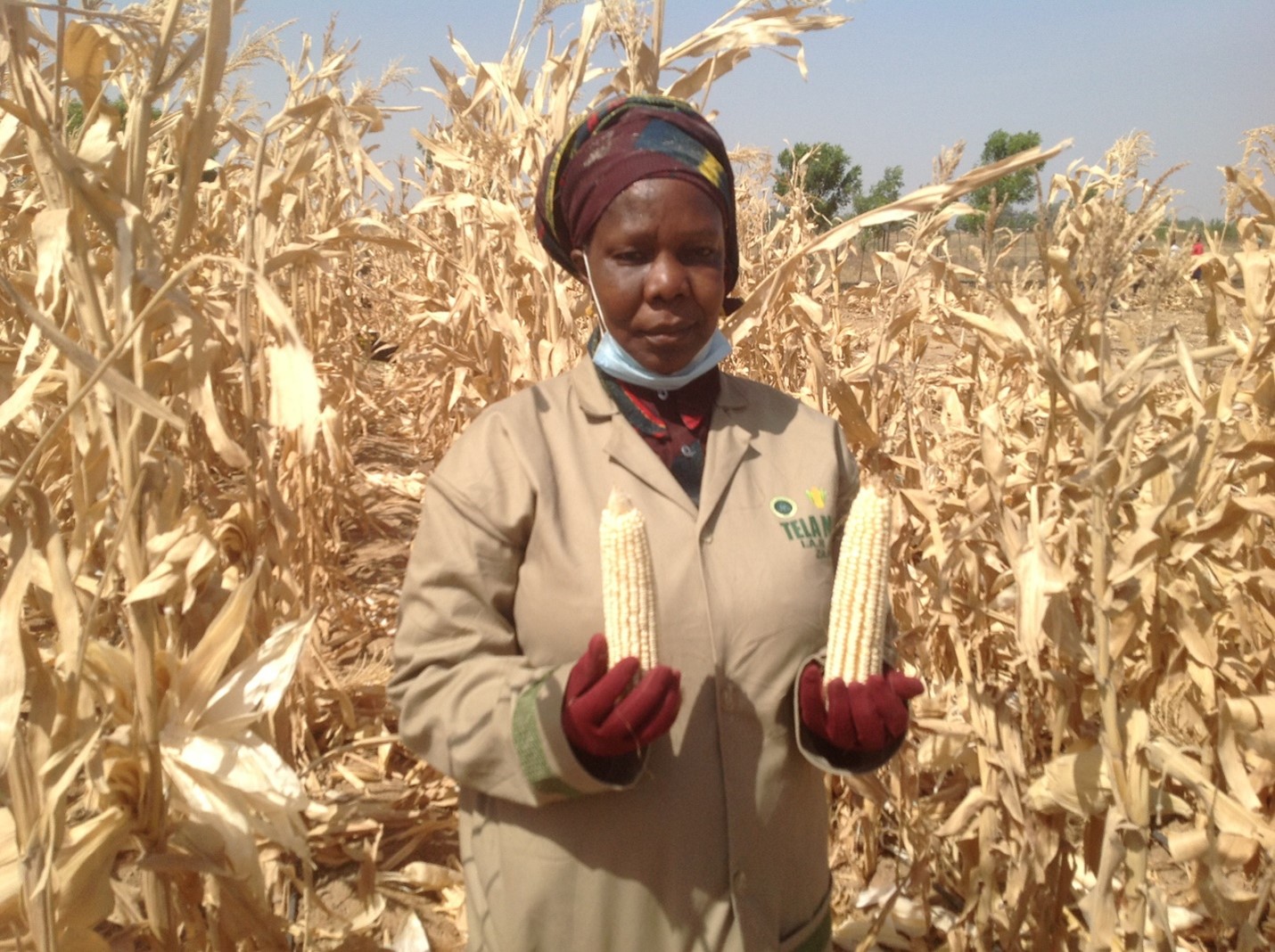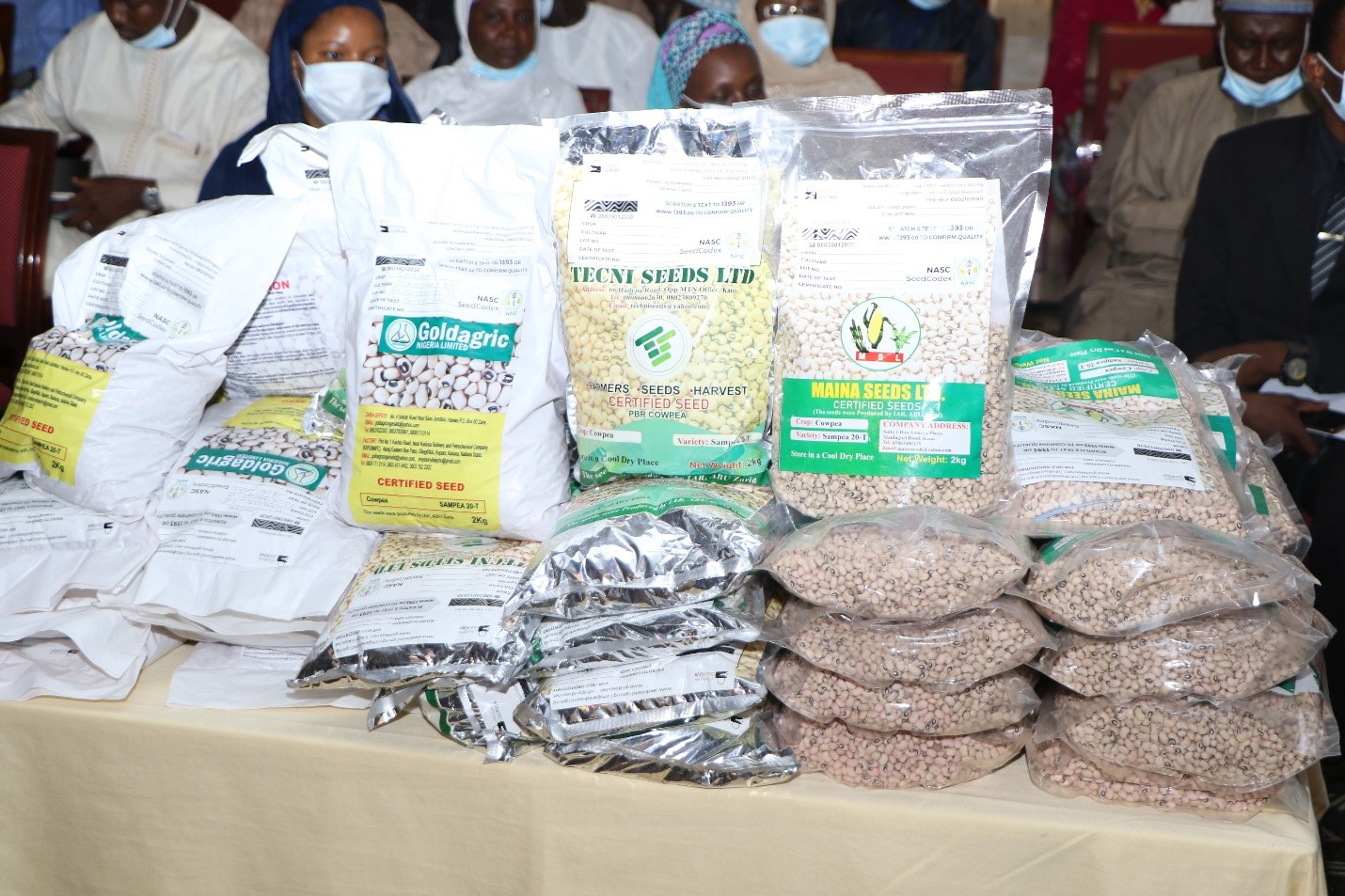
[Abuja: October 8, 2021] Efforts to avail smallholder farmers in Nigeria with maize variety that combines drought tolerance, insect resistance, and other important yield and disease resistance traits to enhance food security have started yielding positive results.
Scientists at the Institute for Agricultural Research, Ahmadu Bello University, Zaria, in collaboration with the African Agricultural Technology Foundation have completed confined field trials of TELA maize, a genetically modified maize variety that is resistant to the deadly fall armyworm, stem borer, and provides tolerance to moderate drought.
Maize is an important food crop consumed by over 300 million people in Sub-Saharan Africa (SSA); and in Nigeria, maize is the 4th most consumed cereal after sorghum, millet, and rice.
Maize contributes to food and nutrition security, accounting for 20 per cent of calorie intake and 16 per cent of national protein needs. It is the most widely grown cereal crop in all agroecologies in Nigeria covering 6.0 million hectares with national productivity at 1.6 tons per hectare.
Since the advent of FAW in 2016 in Nigeria and the rising incidents of drought due to climatic change, productivity of this all-important crop has drastically reduced and negatively impacted maize production across Nigeria.
More than a million maize producer households across Nigeria have been impacted by the FAW with losses in earnings of more than N1.08 trillion (268 million dollars) in just four states, Abia, Ekiti, Ondo and Oyo states, as of November 2017.
After years of research, scientists at IAR have been able to overcome the worm and have gone a step further to address the twin- challenge of insect-pests and drought in maize production, by developing a GM maize that combines drought tolerance and insect protection for Nigeria.
Speaking during the public presentation of the research works, Prof. Ishiyaku Mohammed, Executive Director IAR, said that the TELA Maize variety gave on average 19 per cent yield advantage relative to similar non-GM, hybrids, and 40 per cent higher yield than the commercial checks under the infestation of stem borer and FAW.
Dr Canisius Kanangire, AATF Executive Director, in a goodwill message to the meeting, said the development of TELA was because of the sufferings of farmers who over the years work very hard but reap nothing.
Dr Kanangire said that technology gives unlimited access to overcome the numerous challenges facing farming and hindering productivity, hence the determination of AATF to ensure that African farmers have access to life-changing technologies that will make farming interesting and profitable.
Prof. Rabiu Adamu, Principal Investigator for the TELA Maize project noted that TELA Maize hybrids will reduce the use of Insecticides. Currently, the only option for farmers to control the recalcitrant pests of Maize is via chemical spray.
The coming of TELA Maize variety will greatly improve farmers yields and income of Nigerian farmers. Eliminating the twin challenge of Pest and drought will save Nigeria a lot of foreign exchange hitherto used to purchase chemicals.
Dr Sylvester Oikeh, TELA Maize Project Manager from AATF said maize farmers will benefit greatly from the approval by the National Biosafety Management Agency (NBMA) for the TELA Maize hybrids to be tested with farmers for commercial release because farmers who spend over 50,000 naira per acre every season to protect their maize against these pests will be relieved.
The public presentation is one of the requirements of the NBMA that allows the public to have a say in the research process before it is deregulated and allowed to be planted across Nigeria in national performance trials with farmers, prior to being commercially released as a variety for production in Nigeria.
About AATF (www.aatf-africa.org)
Founded in 2003 to address Africa’s food security prospects through agricultural technology, AATF believes that the agricultural sector is a key foundational pillar as Africa consolidates its economic growth and carves out its new position as a major global economic powerhouse and the next growth market in the world. It was formed in response to the need for an effective mechanism that would facilitate and support negotiation for technology access and delivery and formation of appropriate partnerships to manage the development & deployment of innovative technologies for use by smallholder farmers in SSA:
About IAR: (https://iar.gov.ng/glance)
The Institute for Agricultural Research (IAR), Samaru was established in 1922 as the research division of the Department of Agriculture for the defunct Northern region of Nigeria. IAR was formally transferred by law to the later established Ahmadu Bello University (ABU) on October 14,1962. It is the Institute in Nigeria with the mandate for genetic improvement of crops such as Maize, Sorghum Cowpea, Castor, Cotton, Jatropha, Sunflower, Artemisia and Groundnut and overall farming systems of all crops in Nigeria.
For more information and photos contact:
Alex Abutu,
Communications Officer, West and Central Africa,
AATF.
a.abutu@aatf-africa.org
+234 8068701960
Yakubu Dodo
Information Officer,
IAR/ABU,
Zaria
+234 8023739174



















































































